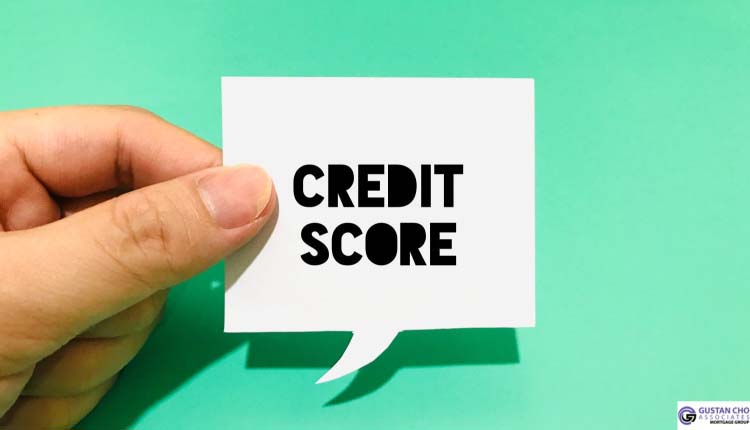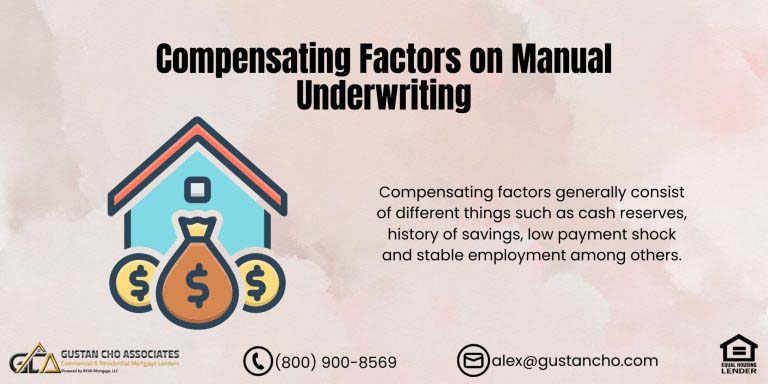In this blog, we will cover and discuss how credit scoring works in the mortgage process. How credit scoring works to for mortgage loans is very simple. The middle credit score of the lower credit score borrower from the three credit bureaus is used by lenders to determine the qualifying credit score of the borrower. This is how credit scoring works in the mortgage process to determine risk of borrowers they plan on lending. Credit scores can fluctuate daily, weekly, or monthly. In the following paragraphs, we will cover how credit scoring works in the mortgage process.
How Credit Scoring Works in the Mortgage Process
Borrowers applying for a mortgage should try to learn more about how credit scoring works in the mortgage process. Maximizing credit scores is recommended. This is so borrowers can get the highest credit scores possible prior to applying for a mortgage. The higher a borrower’s credit scores are, the less risk the lender will determine the borrowers are. The lower the credit scores, the higher risk borrowers will pose to lenders: So which means that mortgage interest rates will be higher.
Unlock the Power of Your Credit Score
Learn how your score impacts loan approval and interest rates.
How Credit Scoring Works in the Mortgage Process
Learn how credit scoring shapes your mortgage journey. See how lenders use your score to decide rates and finalize your home loan quickly.
Introduction: Why Credit Scoring Matters in the Mortgage Process
When you’re ready to buy a home or refinance, the lender immediately pulls your credit score. This number shows how well you manage loans and credit. A high score can unlock lower interest rates and a wider range of loan choices, while a low score may narrow your options and push rates higher. Knowing how the scoring system fits into the mortgage process helps you work toward the best approval and loan terms from the start.
What Is Credit Scoring and Why Should You Care?
Credit scoring tells lenders how reliable you are with borrowed money. It looks at your credit history, which shows:
- How many bills do you pay on time?
- How much debt do you carry?
- How long have you had credit accounts?
- What kinds of accounts do you have?
- How often do you ask for new credit?
When you want a mortgage, lenders check your credit score to determine whether to give you a loan and what interest rate to charge.
How Credit Scoring Works for Mortgage Lenders
Lenders check your Tri-Merge credit report when you ask for a mortgage. This report gives them scores from the three major credit bureaus: Experian, TransUnion, and Equifax. Lenders usually choose the middle score instead of looking at just one score.
Here’s how that works:
- Experian: 700
- TransUnion: 720
- Equifax: 710
In this case, your qualifying score would be 710.
Using the middle score gives lenders a clearer and more balanced view of your creditworthiness.
Key Credit Score Ranges in the Mortgage Process
Different loan programs have unique credit score needs. Here’s a breakdown of how credit scores impact the most common mortgage types:
FHA Loans
- Minimum credit score: 580 with 3.5% down.
- A score of 500 may qualify with a 10% down payment.
VA Loans
- No set minimum, but most lenders prefer 580–620.
- Flexible for active-duty service members and veterans.
USDA Loans
- Recommended score: 620 or higher.
- Aimed at rural and low-income buyers
Conventional Loans
- Minimum score: 620.
- A score of 740 or above helps secure the lowest rates
How Credit Scoring Affects Mortgage Interest Rates
Your credit score is vital for loan approval and interest rate.
- 740 or higher: Best rates on loans.
- 680–719: Rates that are still competitive.
- 620–679: Higher rates and fewer loan products.
- Below 620: Fewer mortgage options and stricter rules.
Changing even a few points can mean saving or spending tens of thousands over the loan’s term.
Boost Your Mortgage Chances with Better Credit
Discover the steps to qualify for the best home loan programs.
What Makes Up Your Credit Score
Understanding credit scores begins with knowing what affects them:
- Payment History (35%): Most important is whether you pay your bills on time.
- Credit Utilization (30%): This is how much credit you currently owe compared to your allowed amount.
- It is best to keep this ratio low.
- Length of Credit History (15%): The older your credit accounts are, the better your score will be.
- Types of Credit (10%): A mix like credit cards, car loans, and mortgages looks good to lenders.
- New Credit Inquiries (10%): Applying for too many loans or cards quickly can ding your score.
Myths About Credit Scores
Some credit beliefs can hurt your mortgage chances. Let’s fix them:
Myth 1: Checking your credit score drops your score.
- Not true.
- Only hard pulls by lenders count against you.
Myth 2: Canceling old credit cards boosts your score.
- Wrong.
- It can shrink your available credit and raise your utilization.
Myth 3: Paying off a collection makes it disappear.
- Not always.
- Paid collections can still show up on your report.
Fast Ways to Improve Your Credit Score Before Your Mortgage Application
Getting your score ready for a mortgage? Try these simple steps:
- Always pay your bills on time.
- Keep credit card balances under 30% of the total limit.
- Hold off on getting any new credit cards or loans.
- Check your credit report for mistakes and fix them.
- Choose a lender like Gustan Cho Associates that has no overlays.
Why Pick a Lender Who Knows Credit Scoring
Different lenders look at credit scores in different ways. Many add lender overlays, which are extra rules on top of the normal ones. Gustan Cho Associates doesn’t do that. We stick to the rules set by the agencies, so even if your score is not perfect, you still have a better shot at getting the loan you want.
Wrapping Up: Credit Scores and the Mortgage Process
Your credit score is important for your mortgage, but it’s not the only thing that matters. Lenders also look at your income, how much debt you have, and your savings. The bright side is, even if your score is low right now, you can take these steps to raise it and make better loan choices.
At Gustan Cho Associates, we proudly help clients that other lenders turn away. Whether your credit is perfect, okay, or needs work, we’ll help you find the mortgage that best suits you.
Common Questions About Credit Scores and Mortgages
What Credit Score Do I Need to Buy a House?
Most loan types require a score between 580 and 620, but that can change depending on the mortgage you choose.
Do Lenders Look at All Three Credit Scores?
Yes. They check Experian, Equifax, and TransUnion and use the score in the middle.
What if I Apply With a Co-Borrower?
The lender will look at the lower middle score of the two borrowers to decide if you qualify.
Can I Get a Mortgage if My Credit is Bad?
Many FHA, VA, and non-QM loans can help you buy a home even with lower scores.
How Fast Can I Boost My Credit Score For a Mortgage?
You can see some score gains in 30 to 60 days, but more lasting change will take longer.
Will Paying Off Credit Cards Help My Mortgage Chances?
Lowering your credit use can improve your score and lower your debt-to-income ratio.
Do Medical Collections Matter For Mortgages?
FHA loans often ignore small medical collections, but bigger ones can still affect your approval outcome.
How Does Co-Signing a Loan Change My Credit Score?
Co-signing a loan brings the new debt right onto your credit report. That means your credit takes a hit if the loan is late or you suddenly have higher debt than your income.
What About Credit Inquiries During the Mortgage Process?
If you shop around for a mortgage and the lenders pull your credit in the same 30-day window, all those checks typically count as just one hit. This rule helps you compare rates without hurting your score.
Can I Get a Mortgage Even if I Have No Credit Score?
Some lenders will consider rent, utility bills, or other payment history instead of a score. However, those lenders are few, and the loans may have stricter terms.
What Are The 3 Major Credit Bureaus Used By Mortgage Lenders
A consumer credit score is rated by each of these three credit reporting agencies:
- TransUnion
- Experian
- Equifax
From Credit Score to Homeownership
We make the mortgage process simple—even with less-than-perfect credit.
How Credit Scoring Works: Credit Score Ranges From a Low of 350 to a High of 850
The lowest credit score consumers can have is 350 and the highest credit score is 850. The higher one’s credit scores are, the lower the risk level the lender classifies the borrower. There are several types of credit scoring models. The most common where lenders use is the Fair Isaac & Company Inc, commonly referred to as FICO. Lenders use the FICO 2 Credit Scoring Model.
How Credit Scoring Works: The Importance of Credit Scores
The way credit scoring and how it works is that consumer scores only take into account the information reported on borrower’s profiles. The scoring model does not take into account the following:
- Assets of borrowers
- Income
- Amount of down payment
- Race, gender, marital status, place of national origin
- Criminal past
Factors Taken Into Account on How Credit Scoring Works Used By Lenders
The scoring model takes the following into account:
- Late payments are taken into account
- Payment behavior
- Current existing debt
- Length of credit history
- Types of credit borrower has
- Number of hard inquiries on report
The scoring model will analyze both positive and derogatory payment patterns and comes up with a specific number. The number can change monthly and gets updated.
How Credit Scoring Works and How Credit Bureaus Update Credit
Here are the components of consumer credit scores:
- 35% of a consumer’s overall score is from previous payment history
- 30% of the scoring model is from amount of balance versus limit
- 15% of the credit score is derived from how much debt a person has
- 15% of the score is from the longevity of tradelines which is when they opened the account with the creditor
How Credit Scoring Works Bases on Consumer Debt Types
Types of credit in a consumer’s profile are taken into consideration in the overall credit score. A combination of installments and revolving debts is a good mix. 5% of the credit score component is new credit. The number of new hard inquiries will drop consumer credit scores but as it ages, it will not have any negative impact.
Maximizing Credit Scores For Mortgage
The key to having higher scores is to always make timely payments to creditors who report to all three credit bureaus. One late payment can drop one’s credit score by 50 or more points. That late payment history will remain on a consumer credit report for 7 years. Most lenders will not allow any late payments after bankruptcy and/or foreclosure. One late payment for $5 dollar can be a deal killer
Tips on Maximizing Credit Scores
Here Are Tips In Maximizing Credit Scores Prior To Applying For Mortgages:
- Always make timely monthly payments
- Keep revolving account debt to 10% or below the credit limit
- Do not apply for too many creditors
- Each hard inquiry will drop scores by 2 or more points and is not a good reflection and not viewed favorably by lenders
- Never close unused cards because aged tradelines is a positive for scoring
How to Maximize Credit Scores Prior to Applying For a Mortgage
Homebuyers thinking of shopping for home and getting pre-approved should start optimizing their credit well in advance. This is because boosting scores does take time and cannot be done overnight. I get many calls from home buyers who need to qualify for mortgage but do not yet qualify. This is because they cannot meet the 580 FICO minimum requirement
Minimum Credit Scores Required To Qualify For Home Loans
Here are the minimum FICO Requirements to qualify for mortgages:
- HUD Guidelines Requires a 580 FICO for 3.5% down payment FHA loans
- HUD guidelines allow borrowers with under 580 credit scores down to 500 FICO to be eligible for FHA loans
- VA does not have any credit score requirements
- Most VA loan programs from most lenders will require 620 FICO due to lender overlays
- There are lenders that will go down to 500 FICO
- Gustan Cho Associates has no overlays on VA loans
- Fannie Mae and Freddie Mac require 620 FICO on Conventional loans
- USDA require 580 FICO
- Most USDA Lenders will want 640 FICO as part of their overlays
- Jumbo Mortgages require 680 FICO
- Gustan Cho Associates has Jumbo Programs down to 500 FICO
- Condotel and Non-Warrantable Condo Loan Programs require 680 FICO
How Credit Scoring Works: Credit Report
The credit report must contain at least one account which has been open for six months or greater. At least one account that has been updated in the past six months for consumers to get a credit score. This ensures that there is enough information in the credit report to generate an accurate score. If consumers do not meet the minimum criteria for getting a score, they may need to establish a credit history prior to applying for a mortgage.
Don’t Let Credit Myths Stop You
Get the truth about how credit scoring really works for mortgages.










